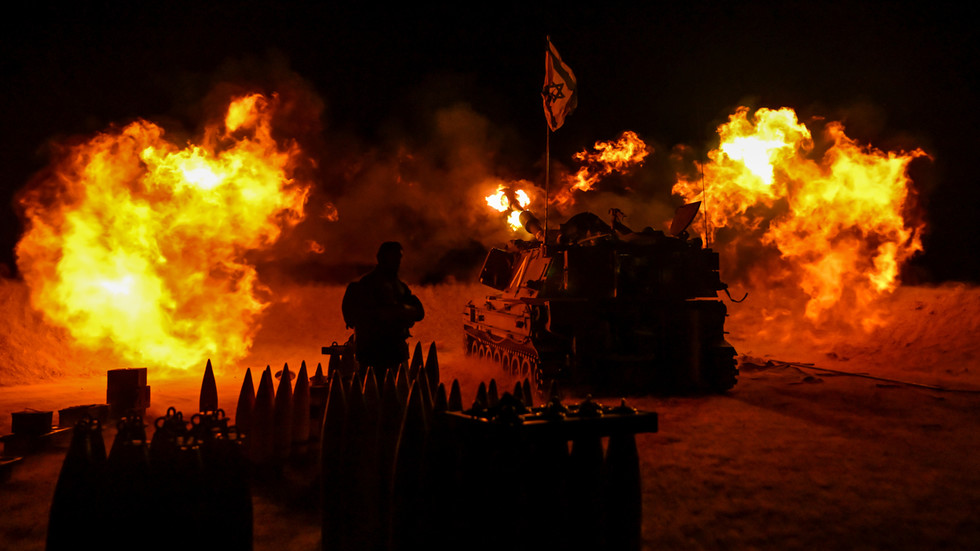On October 7, 2023, the landscape of the Middle East shifted dramatically when Palestinian groups launched Operation Al-Aqsa Flood, firing between 2,500 and 5,000 rockets into Israel and sending over 2,000 armed fighters across its borders. This unprecedented escalation led to substantial casualties, including the deaths of approximately 1,200 Israelis and the kidnapping of 242 individuals. The Israeli government reciprocated with overwhelming force, declaring martial law and launching Operation Iron Swords in Gaza, marking a new and intensified phase in the ongoing conflict between Israel and Palestinian factions. This alarming turn of events has not only reignited longstanding tensions in the region but also divided global perspectives on Israel’s policies and actions, leading to a highly polarized international community.
As the first anniversary of the attacks approached in 2024, the atmosphere in Israel remained charged with emotion and division. While the streets of Tel Aviv displayed nationalistic pride with slogans like “Beyachad Nenatze’ach” (together we will win), deep societal rifts persisted due to differing opinions on how to respond to the war with Hamas, particularly concerning the hostages held in Gaza. Families of the hostages pushed for negotiations for their release, expressing a willingness to halt military operations if it meant saving their loved ones. Contrarily, supporters of a continued military campaign, including the families of fallen soldiers, argued that ceasing hostilities would result in a failure to achieve a decisive victory. This split reflects a broader confusion and anxiety within Israeli society, which was already strained by months of protests against governmental policies prior to the October attacks.
Even before the escalation of violence, Israel was grappling with a convoluted domestic situation, marked by widespread demonstrations against Prime Minister Benjamin Netanyahu’s far-right government and its proposed judicial reforms. The October 7 attacks exposed gaps in governmental crisis management, resulting in civil society initiatives stepping in to fill the void often left by a faltering state. However, as the conflict drags on, initial feelings of unity among Israelis after the attacks have dissipated, resurfacing old divisions over both political affiliations and approaches to the ongoing war. The discussions surrounding the hostages have become particularly contentious, with families advocating for negotiations facing criticism and social backlash, especially among supporters of Netanyahu’s administration who perceive their pleas as detrimental to the war effort.
Internationally, the landscape of support for Israel has experienced notable shifts since October 7. Initially met with solidarity from several countries, sentiments turned as civilian casualties mounted during the Israeli military response in Gaza. While the United States remains a staunch ally, with President Biden affirming Israel’s right to defense, domestic protests against military actions reflect growing dissent. In contrast, numerous European nations have criticized Israel’s escalating violence, with calls from countries like Norway and Ireland recognizing Palestine as an independent state. Notably, South Africa’s legal actions against Israel in the International Court of Justice accused the nation of genocide, adding a significant layer of complexity and discontent to international relations surrounding the conflict.
The conflict has consequently escalated beyond its original confines, veering the entire Middle East toward potential full-scale war. As military operations continued unabated in Gaza, Israel’s decision to act aggressively against Hezbollah in Lebanon and to conduct retaliatory attacks assumed a grave significance. Assassinations of key figures, including Hamas leader Ismail Haniyeh and Hezbollah’s Hassan Nasrallah, triggered fierce responses, leading to direct confrontations between Israel and its regional adversaries. Despite numerous international calls for ceasefires and negotiations, the cycle of violence persists, with many analysts warning of an imminent and catastrophic regional escalation.
In this complex context, Netanyahu faces the dual challenge of consolidating his power internally while navigating external threats from Iran and its allied groups. His strategic objective appears rooted in countering Iranian influence, which he views as the primary threat to Israeli national security while simultaneously attempting to quell opposition criticism that has intensified in the wake of recent crises. The year following the October attacks has seen deterioration across the Middle East, with military interventions in Gaza and Lebanon along with rising tensions with Iran, foreshadowing a conflict that could extend to involve significant global powers. Though calls for diplomacy remain, the situation remains precarious, as Netanyahu’s government continues forward with military operations in a bid to assert control and maintain its political standing, leaving the broader risks of a fully realized conflict hanging ominously in the balance.

